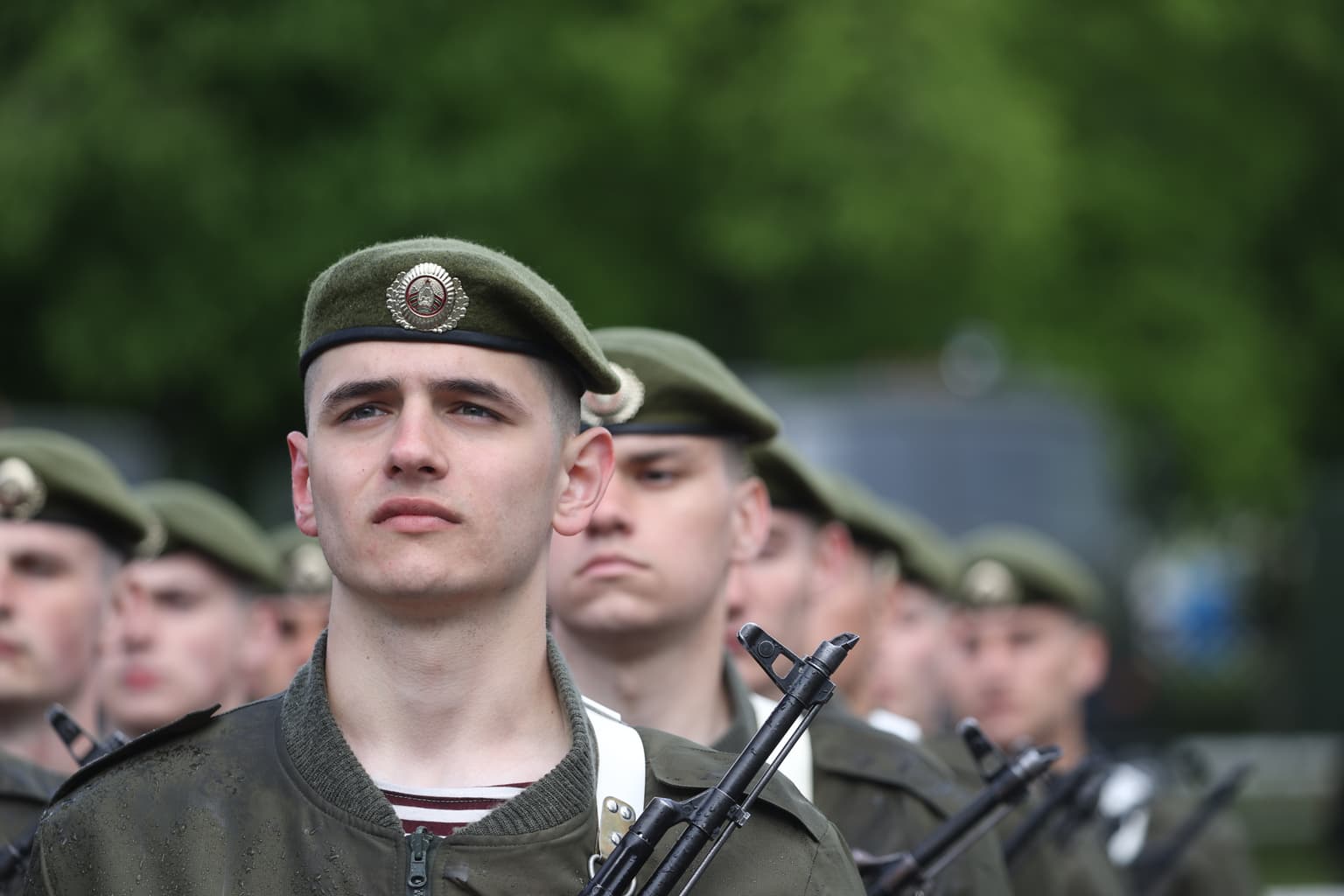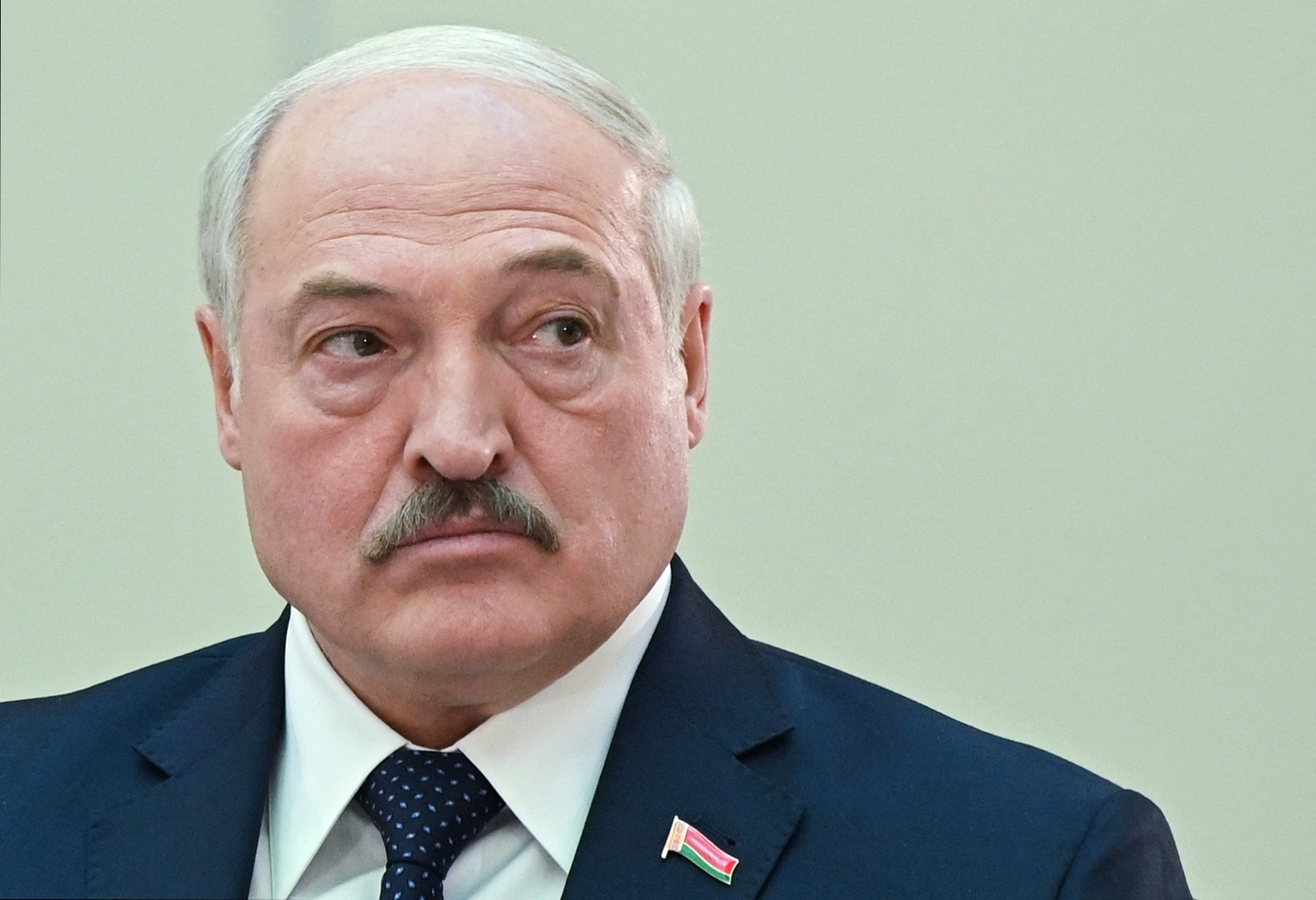Belarus Weekly: Ukraine is stepping up its combat readiness in 4 regions bordering Belarus

The Kyiv Independent is continuing to provide readers with a weekly roundup to help explain current events in Belarus. To receive the Belarus Weekly newsletter subscribe via this LINK.
Belarusian dictator Alexander Lukashenko permitted foreign military attachés to observe Belarus’ military drills and renewed the country’s commitment to providing the OSCE with information on its military.
Meanwhile, Ukraine is stepping up its combat readiness in four of its oblasts bordering Belarus. Ukraine has also seized assets worth $136 million belonging to two Belarusian oil companies accused of financing Russia’s full-scale invasion.
The brewing dispute between Lithuania and Russia over the transit of goods to Russia’s Kaliningrad Oblast draws attention to the Suwalki Gap – the 100-kilometer strip at the Poland-Lithuania border that Russia may potentially target from Belarusian territory.
As Belarus’ KGB continues to add political opponents to its official “list of terrorists,” a ratio of one alleged terrorist per 100,000 residents is fast approaching.
At the same time, Belarusian lawyers defending clients in politically motivated cases are facing persecution and are barred from practicing law.
Zelensky orders border defense checks in case of offensive from Belarus
Amid ongoing military drills conducted by Belarus along its border with Ukraine, President Volodymyr Zelensky has ordered assessments on troops’ combat readiness in four of the five Ukrainian oblasts bordering Belarus.
Oleksandr Motuzyanyk, a spokesperson for Ukraine’s Defense Ministry, claims that Belarus has deployed seven battalions totaling around 4,000 troops along the Ukrainian border.
In his speech on June 17, Lukashenko once again blamed the West for “dragging Belarus into the war” and threatened to fire missiles at Kyiv should Ukraine attack Belarus.
However, a report by the Institute for the Study of War suggests that, despite an increase in military activities by Belarus, it remains unlikely that the country will directly join Russia’s full-scale war against Ukraine due to the risk of domestic unrest.
Politico: Suwalki Gap - ‘The most dangerous place on Earth’
On June 18, Lithuania suspended the transit of some goods to and from Russia’s Kaliningrad Oblast, locked between Poland and Lithuania.
Lithuania announced that, in compliance with EU-imposed sanctions on Russia, it would gradually cease the transit of goods such as construction materials, coal, metals, and advanced technology to and from Kaliningrad. The move will reportedly affect 40 to 50% of the goods imported and exported to the region via Lithuania.
Because Kaliningrad is sandwiched between the two EU member states, Russia will have to rely on a remaining sea route to supply its exclave. The Kremlin was quick to pronounce Lithuania’s decision a “blockade,” promising retaliatory measures to “defend its national interests.”
On June 26, Lukashenko said that Lithuania's decision to comply with EU sanctions and suspend transit of some goods "resembles a declaration of war."

Belarusian dictator Alexander Lukashenko attends a meeting with his Russian counterpart Vladimir Putin outside Saint Petersburg, on Dec. 28, 2021. (Getty Images)
The tensions over Kaliningrad have sparked concerns over the Suwalki Gap, a 100-kilometer Lithuania-Poland border that separates the Russian exclave from the Russian ally - Belarus.
According to Politico, the area would potentially be one of the first targets should tensions escalate between Russia and NATO. Former Russian Prime Minister currently in opposition to the Russian regime, Mikhail Kasyanov, said in an interview that, if Ukraine falls, the Baltic states will be next.
Belarus promises to resume military cooperation with OSCE
Valery Revenko, the head of Belarus’ Defense Ministry’s Department for International Military Cooperation, announced on June 15 that foreign military attachés will be permitted to observe the country’s military drills. He didn’t provide information on which countries would be allowed to inspect the ongoing drills near Ukraine’s border.
However, Revenko said that Belarus pledged to resume sharing information on troop movement and weapons disposition with the Organization for Security and Co-Operation in Europe (OSCE).
Ukraine seizes assets of Belarusian oil companies worth over $136 million
Kyiv’s Prosecutor’s Office announced on June 16 that $135.7 million worth of assets of a Belarusian oil and gas company have been arrested. Although the company isn’t disclosed, journalists believe the company in question is a subsidiary of “Belarusneft,” the country’s major oil production company sanctioned by the EU.
Prior, Ukraine’s Security Service reported on June 15 that it had seized $676,000 worth of assets from an undisclosed Belarusian company specializing in fuel retail, presumably gas chains.
According to SBU, the arrests were carried out because the companies financed Russia’s ongoing invasion.
Belarus extends list of alleged terrorists
On June 20, Belarus’ KGB added nine names to its list of “terrorists and terrorist organizations.” Seven of those listed are already in custody.
Pavel Kulazhenka, a former Belarusian riot police officer who is currently fighting for Ukraine with the Kastus Kalinouski regiment, is among those listed. Yuliana Shemetavets, a representative of the hacker group Cypberpartisans responsible for the attack on Belarusian government websites and law enforcement databases, is also mentioned.
Belarus’ list of terrorists and terrorist organizations was created in 2011 in an attempt to address international terrorism and consisted primarily of non-Belarusian citizens. Belarusian nationals first appeared on the list in 2020 in the aftermath of the country’s presidential elections and now account for 10% of the list, or 90 individuals. The number of alleged terrorists in Belarus is fast approaching one alleged terrorist per 100,000 residents.
This move is serving to deprive political activists of external financial support, which would be deemed “financing terrorism,” as well as grounds for additional cases resulting in capital punishment.
Lawyer punished for defending client with license revoked mid-trial
Belarusian lawyer Andrey Machalau, on June 15, was sentenced to two years of freedom restriction, a special form of house arrest, for the alleged “use of fake document” during a legal trial.
The “fake document” was his legal license, secretly revoked prior to the court hearing.
Machalau was defending clients in politically motivated cases and was disbarred. He was not notified of the government's decision to revoke his license and found out about it during his client’s trial.
Machalau’s attorney, Vasil Brahiniec, was unable to represent him because he was serving an administrative arrest for "failing to obey the police.”
Many lawyers undertaking politically motivated cases in Belarus have faced lifelong bans from doing their jobs. Examples include the trials against Belarusian opposition leader Viktar Babaryka and his allies Maria Kalesnikava and Maxim Znak, who all were sentenced to over 10 years in prison.
Belarus attempts to form territorial defense units, people’s militia
Lukashenko announced the creation of territorial defense units and a “people’s militia” on June 3. However, only two weeks later, officials began providing more information on the new militarized units.
Andrey Krivonosov, head of Gomel Oblast’s military commissariat, announced that the territorial defense units are currently recruiting “only trusted and reliable” men aged 40 to 50 to participate in drills taking place in the region’s Zhlobin District from June 28 to July 16.
According to Krivonosov, the units will protect parts of Belarus’ border.
In a statement on June 16, Belarusian Defense Ministry said adults deemed physically unfit for military service or participation in territorial defense units, but are able to use weapons, may instead join the “people’s militias.”
In this capacity, residents will be equipped with light weapons and enforce curfews, protect public order, and identify alleged saboteurs.
Lukashenko reportedly envisions the “people’s militia” becoming a pro-government paramilitary group should a civil war begin.









